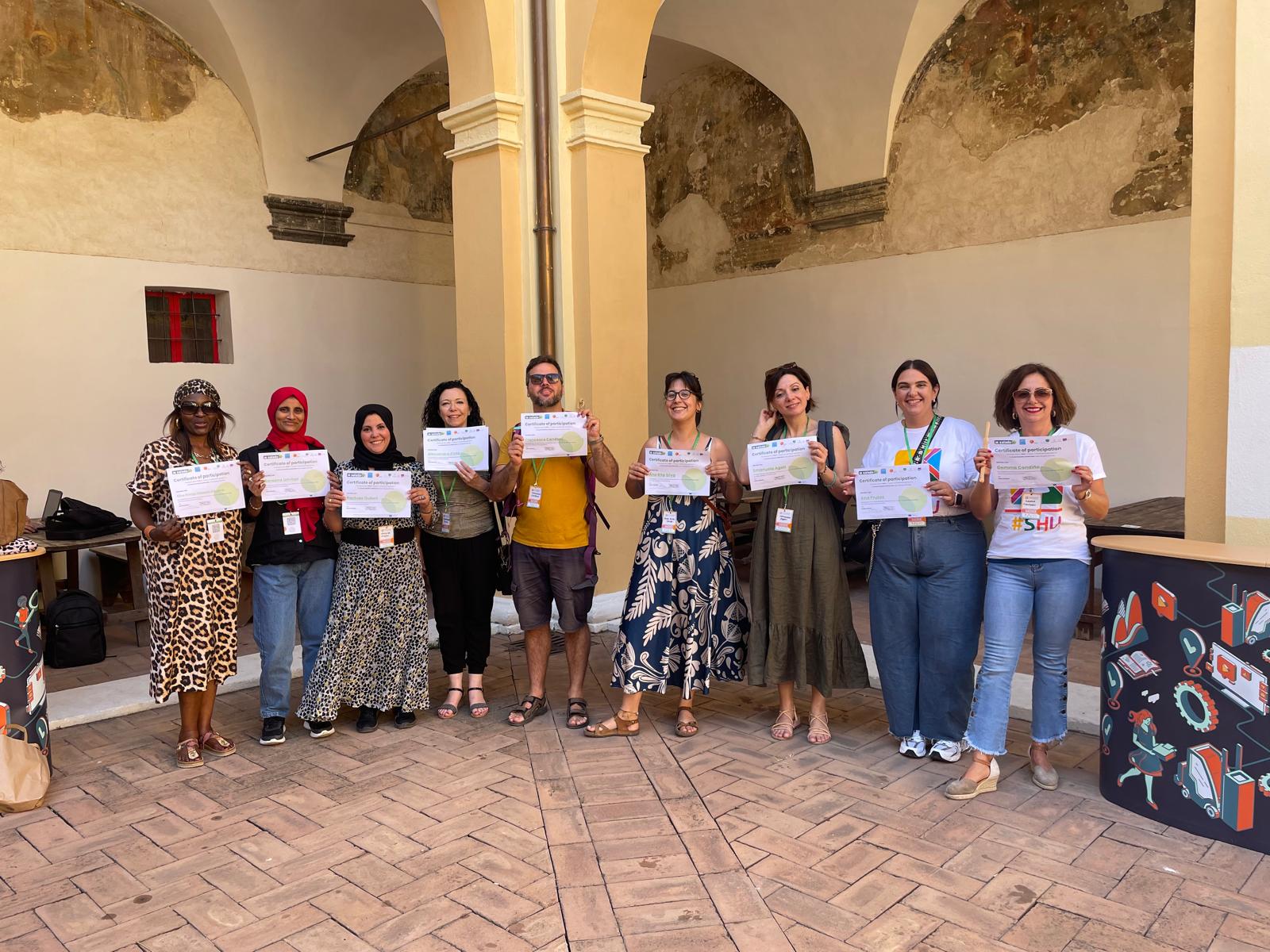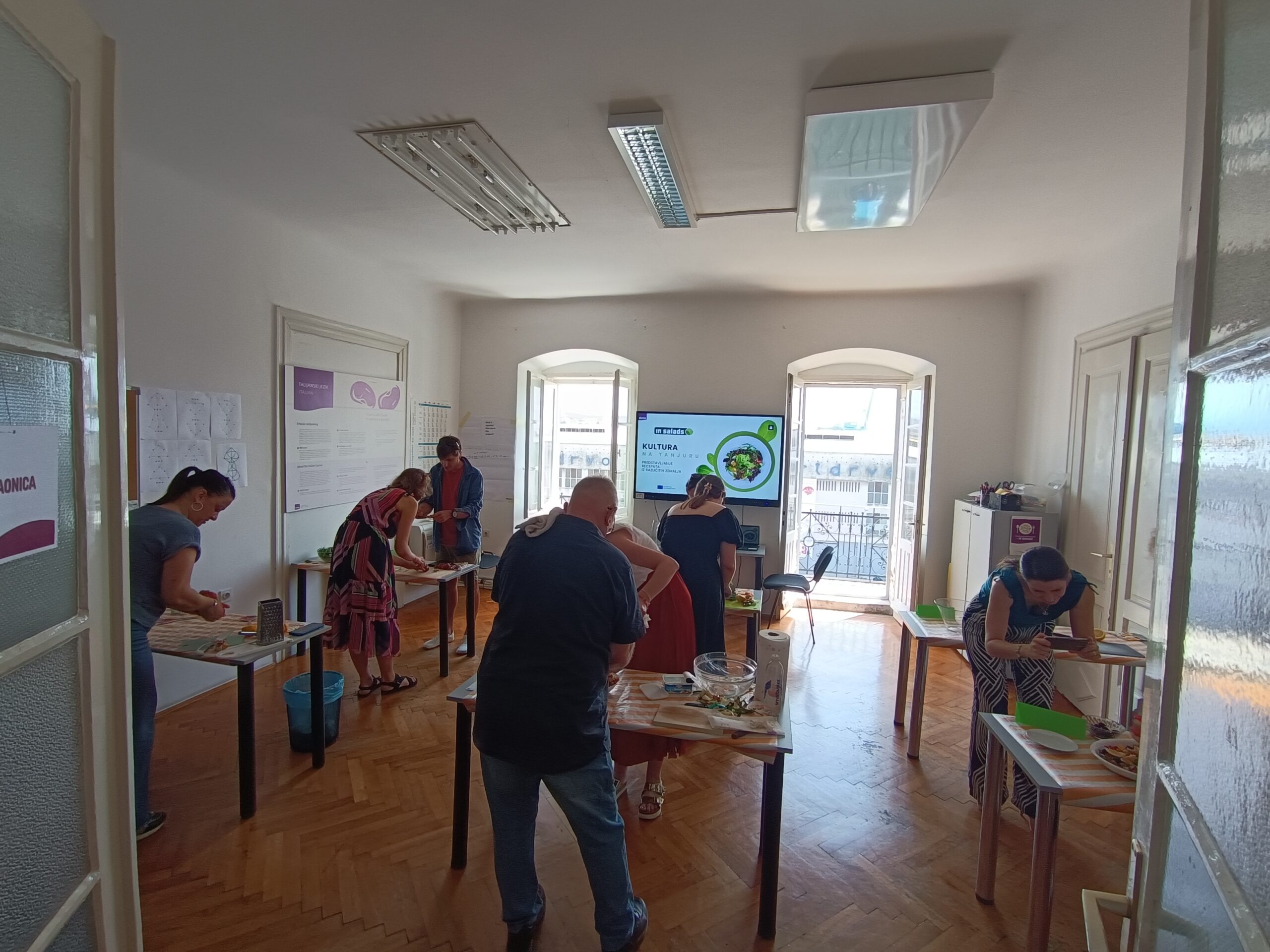Urban vegetable gardens as examples of city sustainability first came about in the 1960s, linked to environmentalism and the movements promoting a more natural, fairer and more caring world.
The “Orto Urbano” (urban vegetable garden) of Udine, located in Via Bariglaria and managed by the ALPI Association, is a good example of this idea of sustainability. Doctor Mario Canciani, the leader of ALPI association, has become a model for sustainable gardening for citizens and our school. He gives public speeches and lectures on the scientific use of vegetables to our teachers and all our students, that come from different regions of the world.
He can fascinate our students, introducing knowledge about medicine, well-being, and how to use plants to promote higher standards of life. He covers topics such as healthy nutrition habits or curiosities about medicinal, toxic and aromatic herbs growing in the urban garden of Udine.
There is an exemplary collaboration between CPIA of UDINE, ALPI and another Italian environmental association called LEGAMBIENTE and with the purpose to promote sustainability, we are engaging our students into a stimulating experience. Almost all our learners come from a migratory background and may face social exclusion in Italian society; their involvement in this event is also helping in preventing that possibility.
This is the second consecutive year that the CPIA of UDINE participates to the opening ceremony of the “Orto Urbano” of via Bariglaria. On both occasions we were able to organize a great party: we brought our students’ salads to the people of Udine and showed them the commitment of our school to encourage the use of a sustainable diet with an intercultural approach, as promoted and discussed within the Erasmus Project INSALADS.
Kissed by the sun of a warm spring day, we enjoyed the opening ceremony held on Saturday May 4th. Volunteers of the “Orto Urbano”, politicians and residents were positively impressed watching our presentation about intercultural salads, and were delighted by the rich buffet provided by our generous students.
The educational outputs that emerged from this public event were remarkable because it was an opportunity for our students not only to learn something new about plants and sustainable food, but also to use urban gardening for social purposes, like inclusion. In addition, to show their food in the best way, they used technologies and improved their skills in digital storytelling. They engaged Italian citizenship in an intercultural trip among exotic spices and unusual flavors. This experience also provided good feedback on our work, helping us understand not only how to improve salads, but especially how to enhance communication about intercultural food.
PH: the picture in the article is for illustrative purposes only




